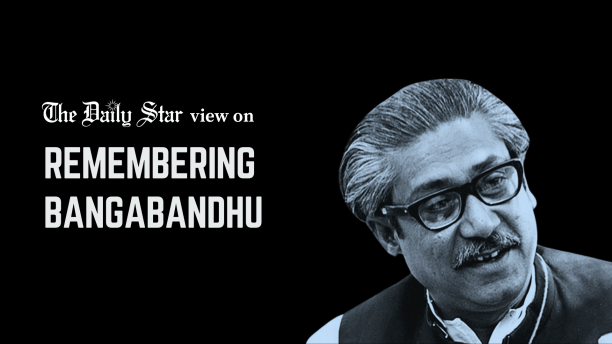We must turn sorrow into strength to take Bangladesh forward

Today, August 15, marks the 49th anniversary of the assassination of Bangabandhu Sheikh Mujibur Rahman and nearly his entire family. We remember his pivotal role in uniting the people of Bangladesh and leading them toward independence with reverence. Emerging as a major opposition figure in Pakistani politics between 1948 and 1971, he became a key leader who rallied opposition to President Ayub Khan and his oppressive regime. It was Bangabandhu who catalysed public support across the then East Pakistan for the Six-Point Movement, advocating for greater autonomy for the region. As the movement garnered widespread support, it became a crucial milestone on the path to Bangladesh's independence.
Sheikh Mujib's most significant contribution came during the tumultuous period leading up to the Liberation War of 1971. Under his leadership, the people of East Pakistan were inspired to fight for independence when West Pakistani leaders refused to acknowledge and respect their wishes. Through his charismatic leadership, Bangabandhu mobilised the masses—particularly through his historic March 7 speech at the Racecourse Ground in Dhaka—to take up whatever arms they could muster and fight for the nation's liberation. Following his call for resistance, millions of brave Bangladeshis put everything they had on the line to liberate the country from the oppressive Pakistani regime led by the ruthless military leader Muhammad Yahya Khan.
Although Sheikh Mujib was arrested and imprisoned in West Pakistan during the war, his indomitable spirit and the leadership he had instilled in the nation kept the fight for freedom alive. The significance of his role in uniting the people of Bangladesh to both dream of and pursue independence cannot be overstated.
The assassination of Bangabandhu in 1975 was a devastating blow to the country. This tragic event marked a dark chapter in our history, bringing the military into our politics—a major issue that the Bangladeshi people had previously struggled with during the Pakistan era. This shocking turn of events set back his vision of creating a fair and just society where every individual would be equal in the eyes of the law. To this day, Bangladesh has yet to fully establish some of the basic principles that Mujib and other independence leaders had advocated for. So, going forward, the best way to honour their memory would be to work tirelessly to establish the Bangladesh that they struggled and sacrificed so much for.



 For all latest news, follow The Daily Star's Google News channel.
For all latest news, follow The Daily Star's Google News channel.
Comments